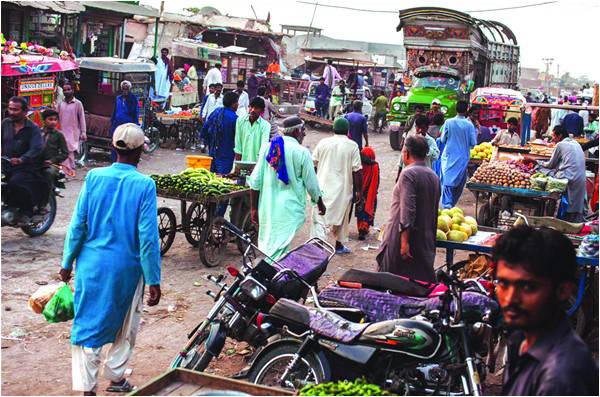
Not to sound too much like a mid-80s PTV teledrama, but everything is becoming SO expensive these days!
It doesn’t help that I am in the process of remodeling a house, which long term readers will know is both my passion and curse. Its a townhouse my family lived in during the early 90s while building their present home. Over the years I’ve sort of taken over trying to update it in small fits and bursts. Though compact, the place is well designed and I had all sorts of fever dreams of me on the cover of Architectural Digest after I had executed my vision for the project. Me in a turtleneck reading thoughtfully in the recessed reading nook; me bending over in Belenciaga to pretend-clean the Bali-style plunge pool; me on the staircase looking both surprised and delighted that a camera just happened to be there as I descended in a floor-length leather poncho in proximity to custom light fixtures made from reclaimed toilet porcelain.
But like so many truths, the reality of construction is far more debilitating than Architectural Digest leads you to believe. The house is very small so a plunge pool apparently was out of the question because it was a) too expensive, b) small enough to actually qualify as a bathtub, and c) the next house would collapse if I built it (which I still fail to see as a bad thing necessarily, because all that the neighbours contribute to the place is a rotating display of their underwear fluttering in the sun. Why can’t people just dry their knickers on the roof? WHY MUST I KNOW YOU WEAR GRANNY PANTIES, NUSRAT?)
The reading nook, custom lights, remodeled kitchen, new floors, iron bannister, hidden rooms - I had to give up on each of these things. Common sense and my contractor prevailed by reminding me that unless one is living in the house oneself, it just doesn’t make sense to spend that much. So I’ve settled on achievable but unsexy goals: redoing the plumbing, painting the rooms, polishing the cabinets, fixing the light switches. The biggest project is redoing the bathrooms as discount versions of what I think they should have looked like. Instead of mosaics, I have gridded tiles. Instead of a rain shower that feels like prancing in the less lethal parts of the Amazon, I have a 7-inch shower nozzle.

Even these modest improvements add up over time. And add. And add. All of us have noticed the ways in which the Pakistani economy has been contracting. The same amount of money doesn’t go as far, and it’s shrinking by the day. Just in the last year the dollar has jumped so high and so fast that the economy is still reeling. What was once Rs. 100 has jumped precipitously to Rs. 150 and counting. That kind of shock can’t simply be absorbed into our already choking economy, and so everything is becoming so much more expensive - much more quickly than we can catch up. Biscuits, fuel, clothes, gas, internet, electricity, chutneys: all seem to have been hit by inflation. Even my nascent knowledge of how systems of money work tells me that we are not headed in a good direction at all, and it takes all my will to be civil to PTI supporters that I meet. Not that it helps with the bills.
The only thing worse than high bills is unexpected high bills. In the two minutes that it was rainy and pleasant in Lahore, I got a call saying that the electric meter that feeds the townhouse had burnt up because of the rain. I hyperventilate when I hear the word meter, because that means I have to deal with WAPDA, our power utility company. My relationship with that company has been an abusive, triggering one since I was a child. It took eight hours, fifteen phone calls, three written statements and several hours of pretending I actually live in the house for them to send someone. When the guy finally came, he took money for a new cable wire but then told me that a new meter wouldn’t be available for months.
“The country…” he shrugged, pointing to the air around us. I pressed and he said the only thing to do is that they’ll guesstimate how much the electric use of the house was and send me a bill based on little more than a whim. Now, given the chance, I knew they’d charge me astronomical amounts because that’s exactly what I would do. So I protested, at which point the man smiled his toothless grin and said that if I paid him Rs 25,000 he would install the meter that day. It was, in retrospect, one of the smoothest ways I’ve been blackmailed so far. His excuse for the expense was that the dollar increase means everything is more expensive, but the truth was this man was just in it to make a few bucks, and in that respect he is like so many other people in the system. I had long ago lost trust in WAPDA, or indeed any other government agency, and considering the contractor couldn’t finish until there was a meter and consequently electricity, I paid, begrudgingly. As so many of us are forced to do. I also videotaped the transaction so that I have evidence he took a bribe, which may come in handy down the line for more work (its amazing the things movies will teach you without you even knowing).
The construction isn’t nearly over. Sometimes it feels like my contractor is an archaeologist, except instead of finding sarcophagi he keeps unearthing more bills. This week it was plumbing, last week it was shower cabin doorknobs. I’m not sure how the economy will recover (truth be told I don’t think its a matter of “when” as much as “if”) but I’ll tell you this: I feel digested, architecturally.
Write to thekantawala@gmail.com
It doesn’t help that I am in the process of remodeling a house, which long term readers will know is both my passion and curse. Its a townhouse my family lived in during the early 90s while building their present home. Over the years I’ve sort of taken over trying to update it in small fits and bursts. Though compact, the place is well designed and I had all sorts of fever dreams of me on the cover of Architectural Digest after I had executed my vision for the project. Me in a turtleneck reading thoughtfully in the recessed reading nook; me bending over in Belenciaga to pretend-clean the Bali-style plunge pool; me on the staircase looking both surprised and delighted that a camera just happened to be there as I descended in a floor-length leather poncho in proximity to custom light fixtures made from reclaimed toilet porcelain.
But like so many truths, the reality of construction is far more debilitating than Architectural Digest leads you to believe. The house is very small so a plunge pool apparently was out of the question because it was a) too expensive, b) small enough to actually qualify as a bathtub, and c) the next house would collapse if I built it (which I still fail to see as a bad thing necessarily, because all that the neighbours contribute to the place is a rotating display of their underwear fluttering in the sun. Why can’t people just dry their knickers on the roof? WHY MUST I KNOW YOU WEAR GRANNY PANTIES, NUSRAT?)
The reading nook, custom lights, remodeled kitchen, new floors, iron bannister, hidden rooms - I had to give up on each of these things. Common sense and my contractor prevailed by reminding me that unless one is living in the house oneself, it just doesn’t make sense to spend that much. So I’ve settled on achievable but unsexy goals: redoing the plumbing, painting the rooms, polishing the cabinets, fixing the light switches. The biggest project is redoing the bathrooms as discount versions of what I think they should have looked like. Instead of mosaics, I have gridded tiles. Instead of a rain shower that feels like prancing in the less lethal parts of the Amazon, I have a 7-inch shower nozzle.

Even these modest improvements add up over time. And add. And add. All of us have noticed the ways in which the Pakistani economy has been contracting. The same amount of money doesn’t go as far, and it’s shrinking by the day. Just in the last year the dollar has jumped so high and so fast that the economy is still reeling. What was once Rs. 100 has jumped precipitously to Rs. 150 and counting. That kind of shock can’t simply be absorbed into our already choking economy, and so everything is becoming so much more expensive - much more quickly than we can catch up. Biscuits, fuel, clothes, gas, internet, electricity, chutneys: all seem to have been hit by inflation. Even my nascent knowledge of how systems of money work tells me that we are not headed in a good direction at all, and it takes all my will to be civil to PTI supporters that I meet. Not that it helps with the bills.
The only thing worse than high bills is unexpected high bills. In the two minutes that it was rainy and pleasant in Lahore, I got a call saying that the electric meter that feeds the townhouse had burnt up because of the rain. I hyperventilate when I hear the word meter, because that means I have to deal with WAPDA, our power utility company. My relationship with that company has been an abusive, triggering one since I was a child. It took eight hours, fifteen phone calls, three written statements and several hours of pretending I actually live in the house for them to send someone. When the guy finally came, he took money for a new cable wire but then told me that a new meter wouldn’t be available for months.
“The country…” he shrugged, pointing to the air around us. I pressed and he said the only thing to do is that they’ll guesstimate how much the electric use of the house was and send me a bill based on little more than a whim. Now, given the chance, I knew they’d charge me astronomical amounts because that’s exactly what I would do. So I protested, at which point the man smiled his toothless grin and said that if I paid him Rs 25,000 he would install the meter that day. It was, in retrospect, one of the smoothest ways I’ve been blackmailed so far. His excuse for the expense was that the dollar increase means everything is more expensive, but the truth was this man was just in it to make a few bucks, and in that respect he is like so many other people in the system. I had long ago lost trust in WAPDA, or indeed any other government agency, and considering the contractor couldn’t finish until there was a meter and consequently electricity, I paid, begrudgingly. As so many of us are forced to do. I also videotaped the transaction so that I have evidence he took a bribe, which may come in handy down the line for more work (its amazing the things movies will teach you without you even knowing).
The construction isn’t nearly over. Sometimes it feels like my contractor is an archaeologist, except instead of finding sarcophagi he keeps unearthing more bills. This week it was plumbing, last week it was shower cabin doorknobs. I’m not sure how the economy will recover (truth be told I don’t think its a matter of “when” as much as “if”) but I’ll tell you this: I feel digested, architecturally.
Write to thekantawala@gmail.com

